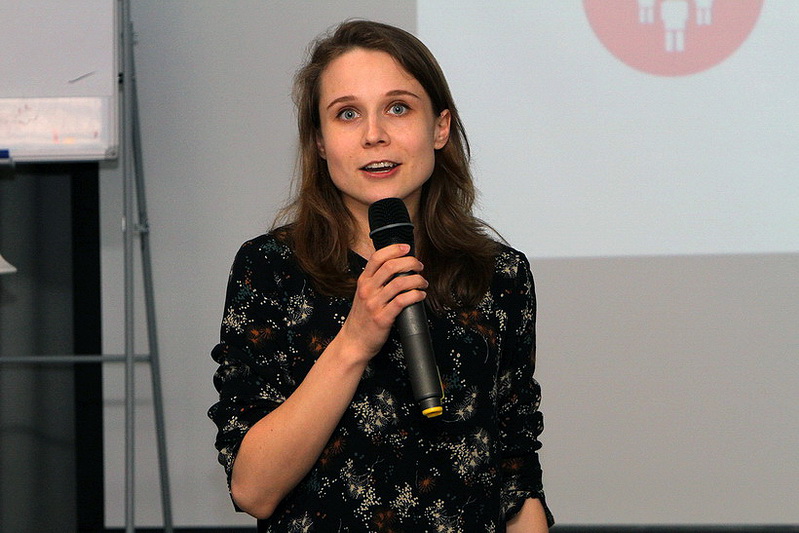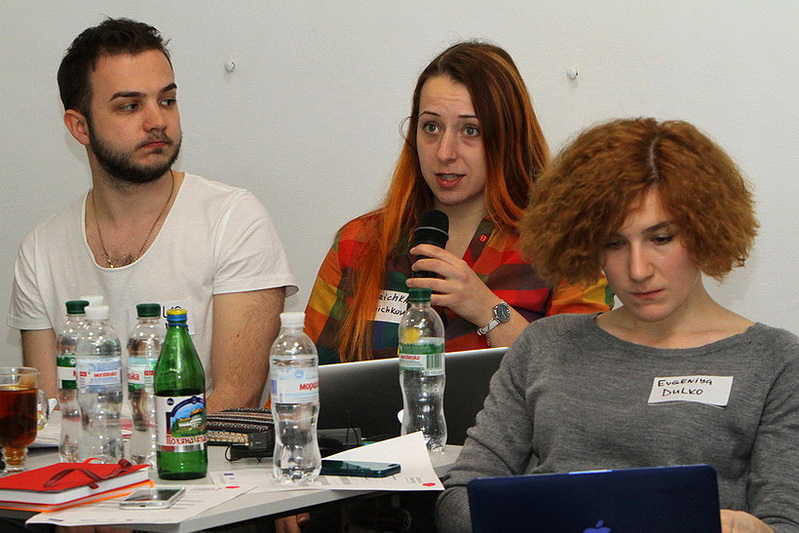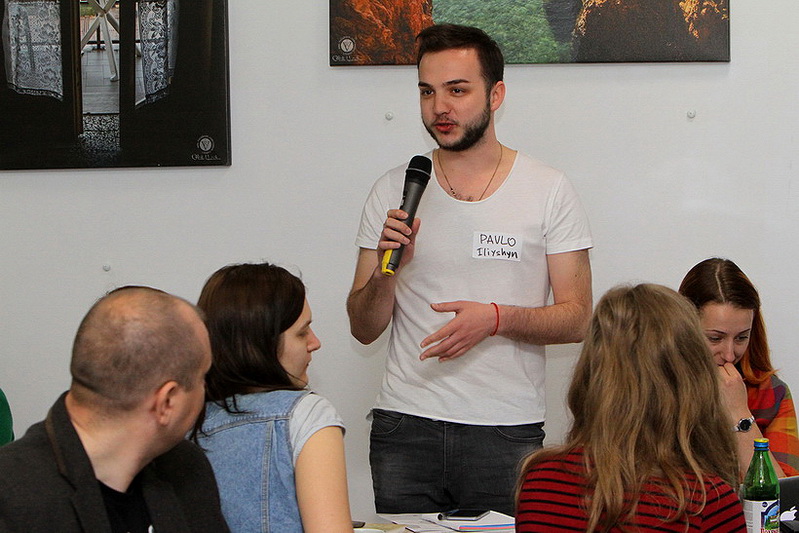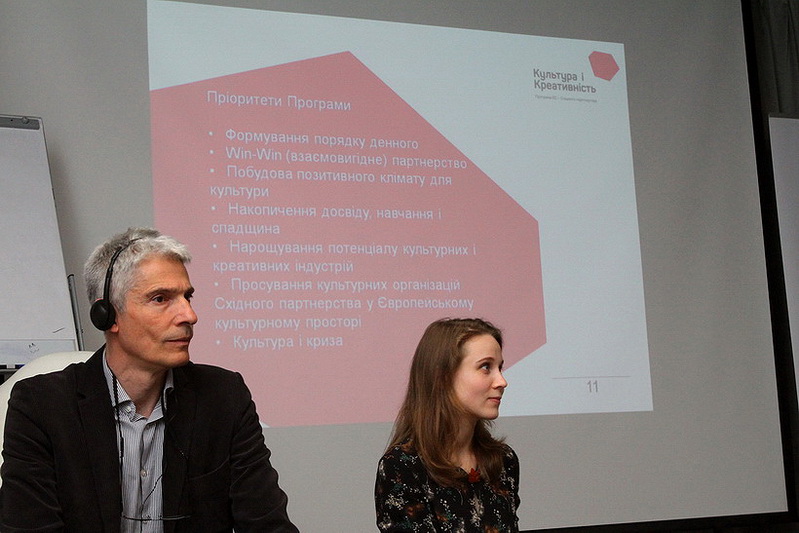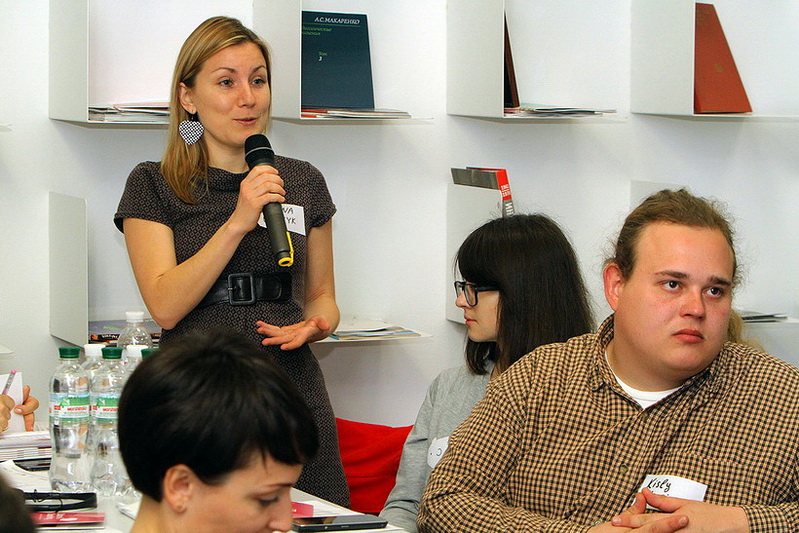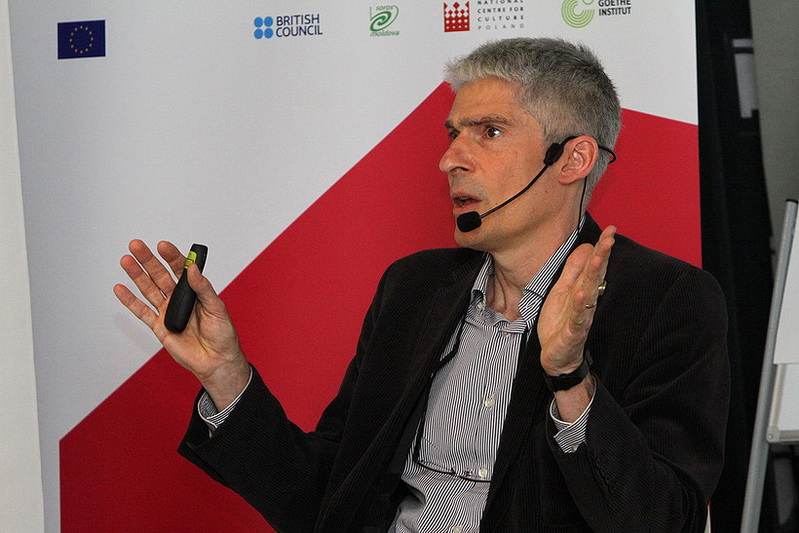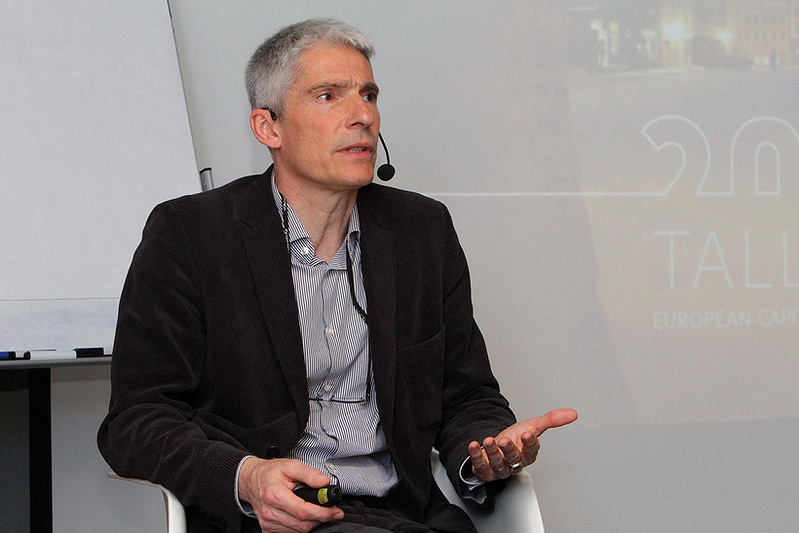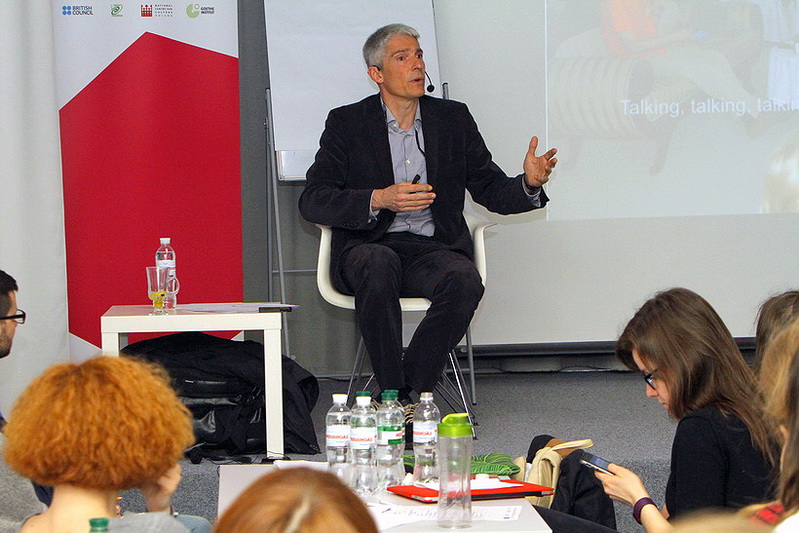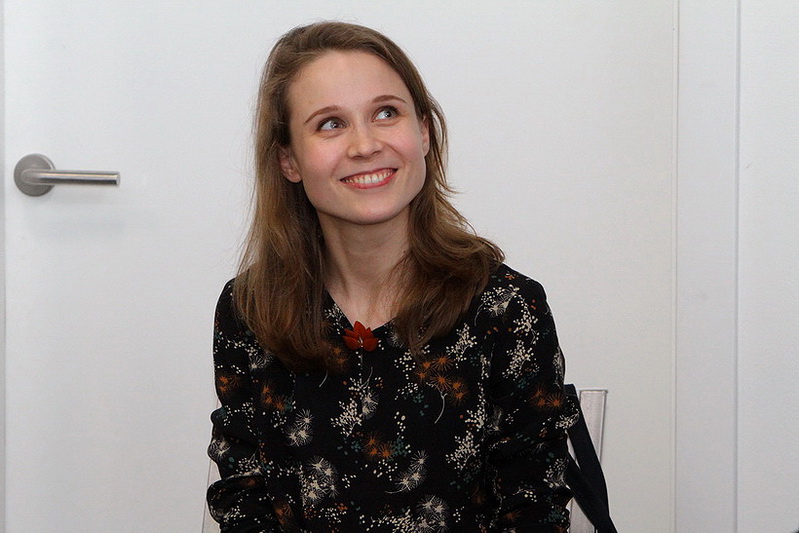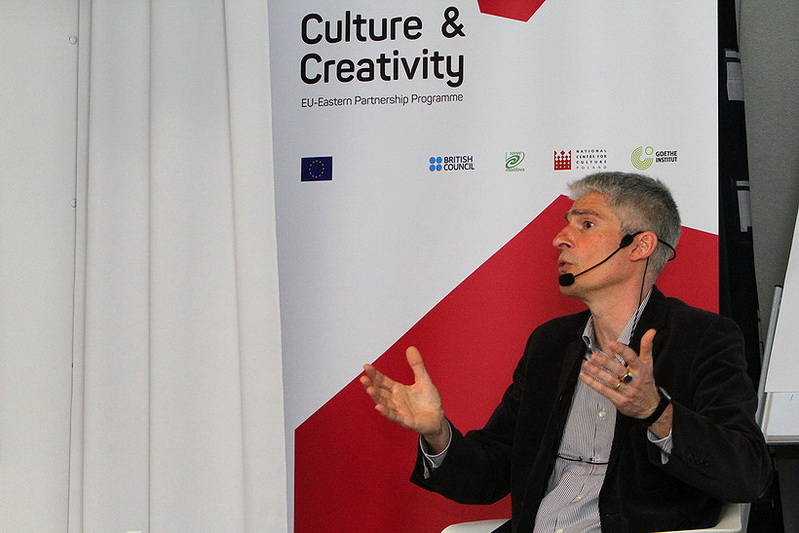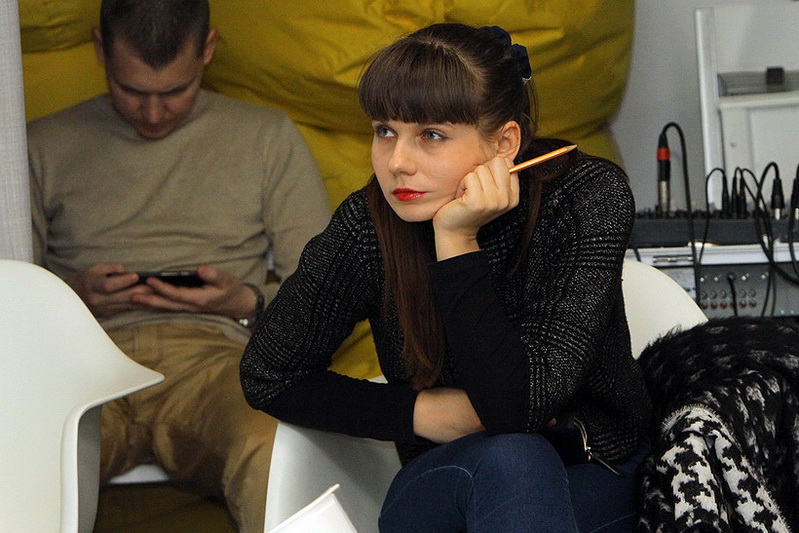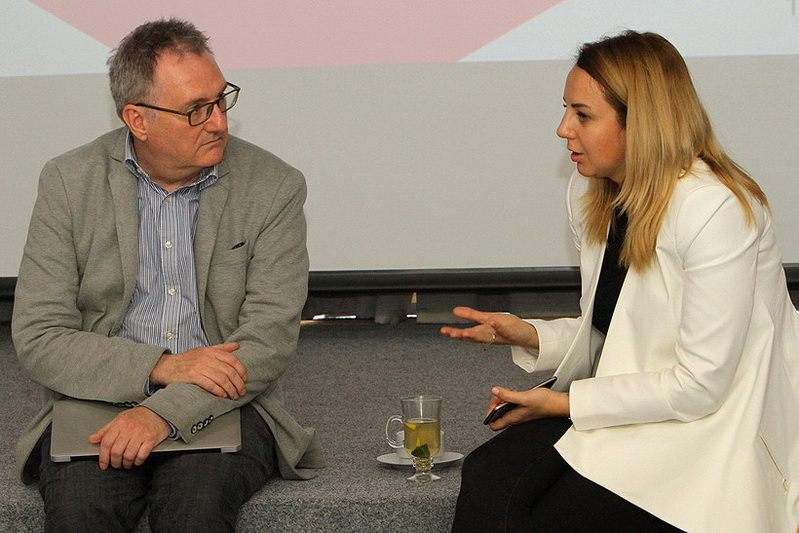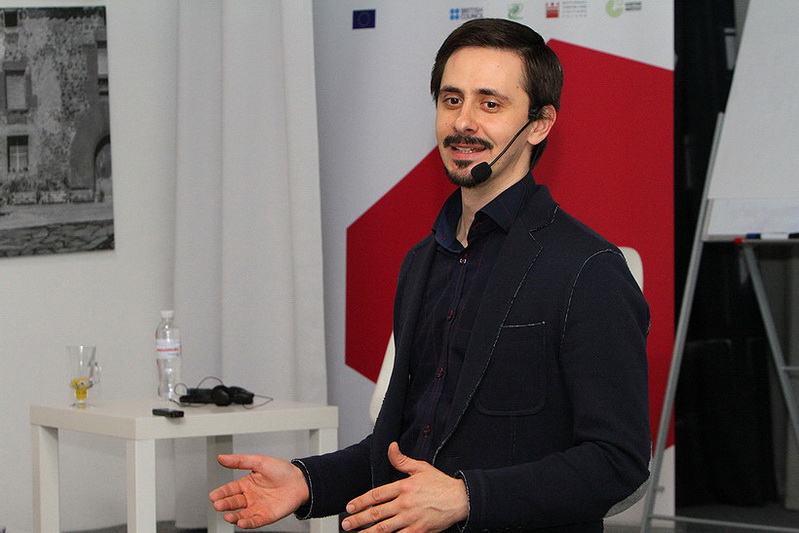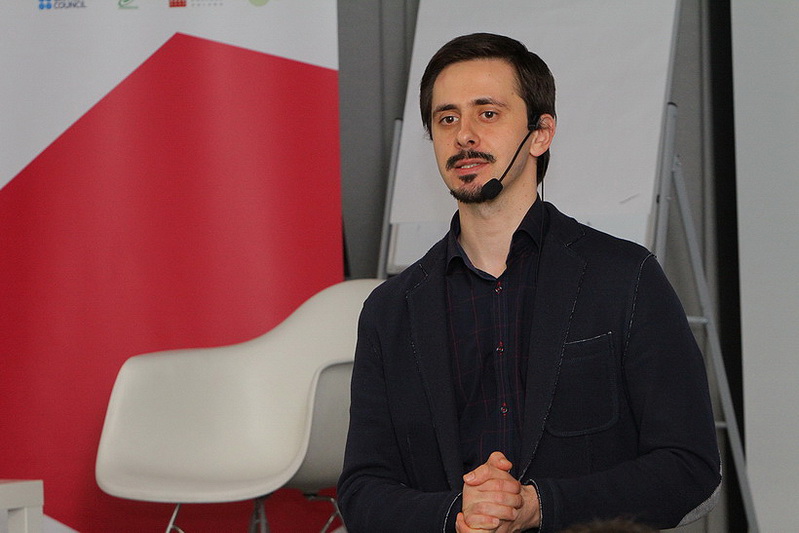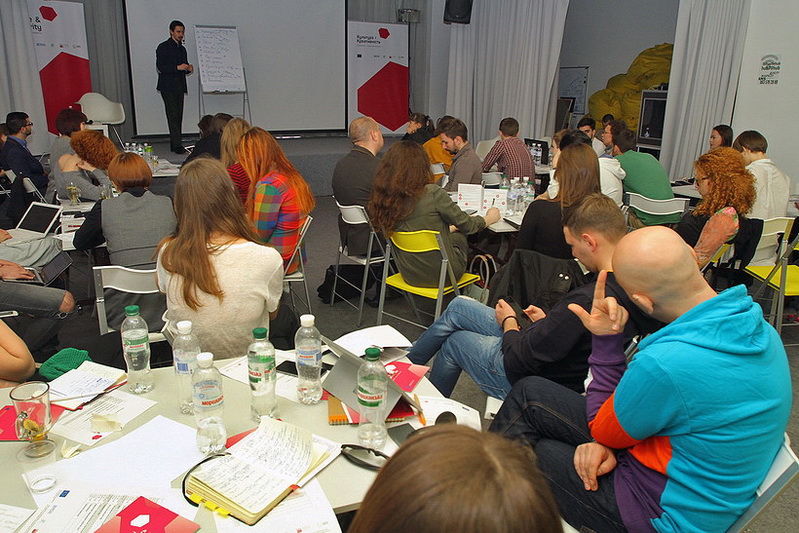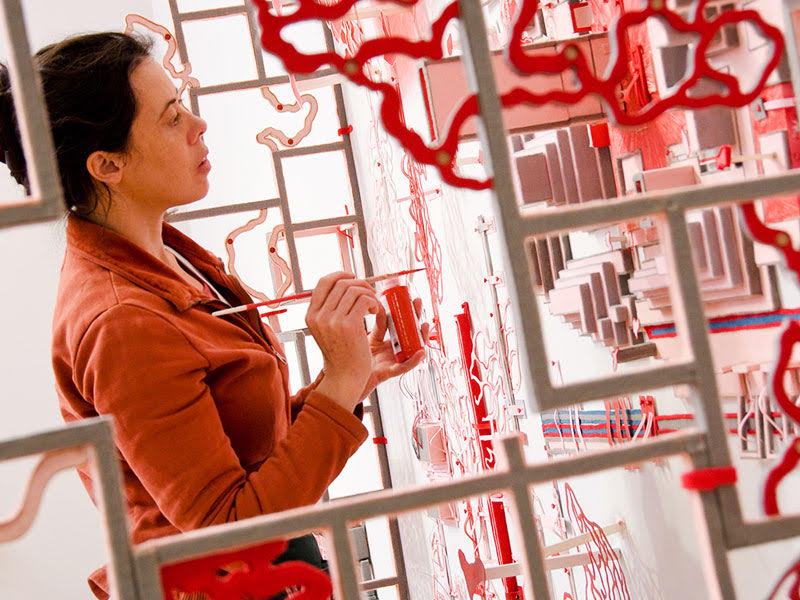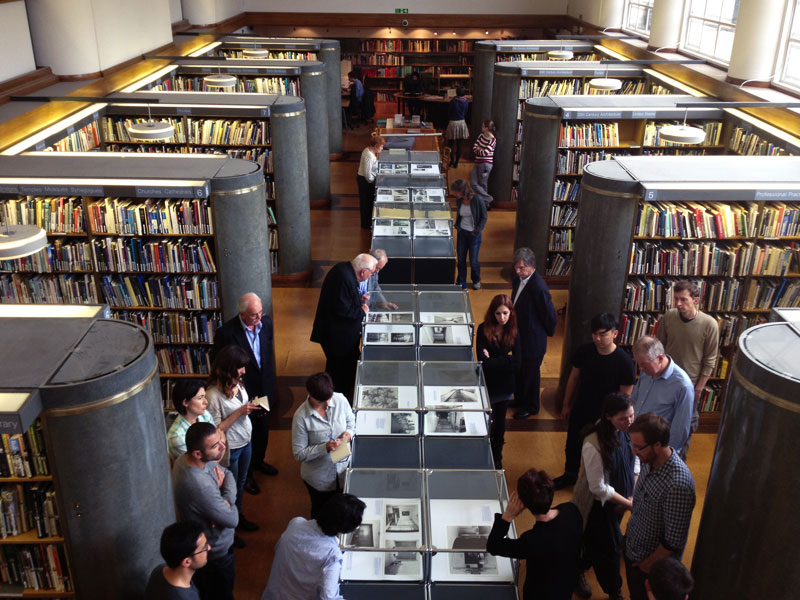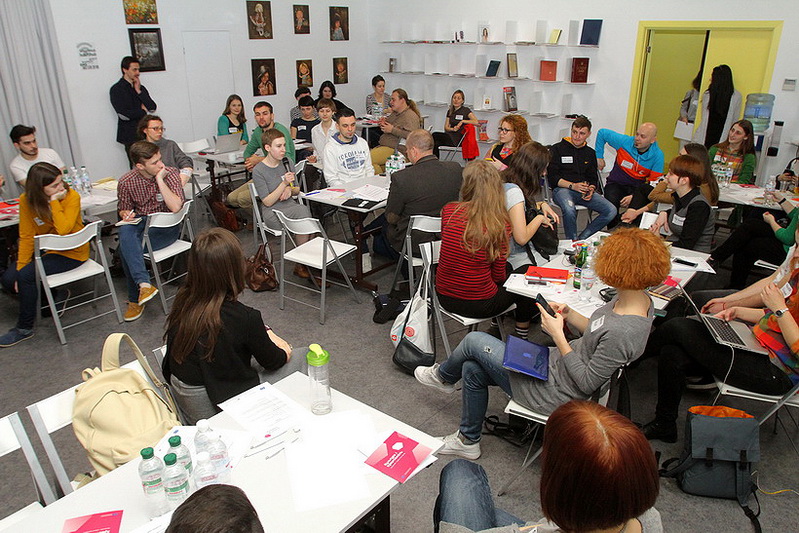
Miiko Fritze: “If you don’t respect people, it is hard to lead them; you can do it only through fear”
Fritze shared some personal principles of leadership he is following while working in cultural sphere. Thus, according to him, leadership is about:
Trust. It is very hard to reach trust and it depends very much on leader how to deal with that.
Transparency. I think it is the most crucial thing. It is hard to lead if you don’t tell people what you are doing and if you don’t make it transparent, especially in democratic systems. Transparency is very important, otherwise you have no trust.
Sharing. When I was working in Estonia, I realised that sharing information is not easy for the most of people. Sharing emotions is not easy as well. If you lead, it is ok to share your emotions.
That leads to empathy. If you share emotions, you have to be able to catch the emotions of your team as well. It is not always easy. From my experience, people are not really afraid of bosses, they are not afraid of not having a leader, but they are afraid if they are not respected. If you don’t respect your people, it is hard to lead them; you can do it only through fear.
Asking. Bosses do not want to know everything. Just show that you don’t know it, your team will know it.
Risk. The cultural field is not like a factory. You can’t make a plan setting the things from the beginning to the end. Sometimes, at the certain part of your project, you know where you are and what should be done. But in general, you don’t know if you succeed. So you have to take risks.
If you have project, especially a bigger one, it is always good if you have message. It makes it easy to explain to the press, to the politics, to everybody.
Passion. I think that this is the thing you cannot probably learn. But if you have it, let it out.
Here are key issues by Tim Williams, Head of the Culture and Creativity Programme, and Ihor Solodov, business-trainer, put emphasis on:
On the roots of leadership
I think you need to look at the education system to begin with. Education system in every country shapes how people view leadership. In Estonia, the education system is very free and open. In Ukraine, there is more top-down education process. It is sort of repeating things that have been said, rather than openly challenging teachers and their ideas and views and encouraging pupils. It is also about the ability for people to defend their personal position, not to be a carbon copy of the textbooks (Tim Williams).
When people go to their workplaces, it results in different kind of leaders. Because people go from school straight to the work and that is where, in many cases, leadership is first developed (Tim Williams).
On the leadership and difference between leadership in cultural and other spheres
Generally, there is no difference between leader in cultural sphere and in business or politics. The fundamentals of management are the same. However, if you work in a cultural sphere, you take greater risk (Tim Williams).
Also if you are working with artists there is an issue which I would call “talent management.” Talent management is about not treating artists in the same way as maybe office workers. Office workers work as a team. Working with the artists, on the contrary, is very individual thing. It is linked to their creative sensibility, so you have to focus much more time on individuals rather than teams (Tim Williams).
Leadership is trepidation and an ability to encourage people to make necessary changes (Ihor Solodov).
On what is the difference between leaders and bosses
For me, leader is a person who feels the necessity of changes and who therefore becomes that change he/she was striving for. Often, such people are later becoming bosses. On the other hand, this does not mean that boss is always a leader. This is about leadership in culture as well (Ihor Solodov).
On how to build up interaction between cultural actors/leaders and authorities
Whenever you work with authorities, they have different perspective on things. The key thing is to draft a plan, to be prepared to change and amend it where necessary. It is also important to put yourself into their shoes: to think first of all where we have common view and to think about what they see as obstacles, identify where they will be nervous and uncover that. Then it is crucial to think about how to overcome that particular issue. At the end it is necessary to give them the vision of what will be achieved if the work is done together (Tim Williams).
On how for cultural leader to combine his/her creative and administrative activities
Ideally, creative people should focus on creative activities, while administrators and managers should concentrate on management behavior. This is how it is being done in the world. In Ukraine, however, creative people are becoming cultural and project managers. How to combine both activities? It is quite simple, if the person manages to realise that it is two different roles. If some cultural actor fails to become project manager, he/she should hire an administrator. (Ihor Solodov)
On the importance of culture and it connections with other spheres
There is a crisis now in business; the crisis of sense and values. As far as what has previously been identified as a goal, is not a goal anymore. Therefore in general, business and economy are now in need of another culture (Ihor Solodov).
For me, culture means foundations. The state, however, is moving wrong way. It has reformed law enforcement bodies, but changes are going down and lack an appropriate support from civil society. It is because of the lack of culture and education. That is why, if we are able to change cultural institutions, a lot can be changed. (Ihor Solodov).


